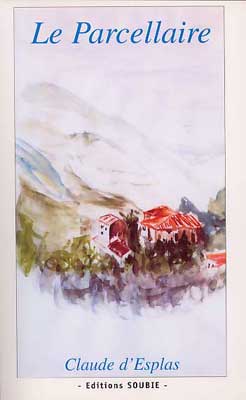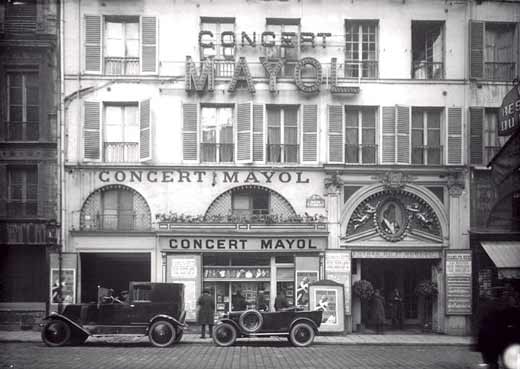|
|
 The Colonel Bravadida, alumnus of the school of Uriage and, consequently, ex-colleague of these buffoons, dynasts of orderly citizenship wearing the boots of Grand Guignol who passes, before acceding - pontiffs with thoracic vocal flourish - to the Presidency of the juries of Schools of Holy Fathers, allocating to the better intentioned of the moment the parcels of an earth eternally promised, the retired Colonel of the Station district, two steps from the gendarmerie barracks, switched off his Philips 7 valves radio, after having absorbed his daily ration of war communiqués particularly reconstructive (“The Obersturmführer SS Mikael Wittmann destroys 21 tanks in 20 minutes” : a long dozen, he said chest thrown out) or of lenifying concerts, with his favourite pieces : “Germany, a nation of aviators”, such as conducted by the bandmaster Seidel at the head of the music of the general staff of the Luftwaffe or the défilé of the exceptional german Women at the Dome of Lohengrin (the Gertrude Scholz-Klink , the Hanna Reitsch , etc.) accompanied by the bandmaster Klamberg, at the head of the clique of the commandant of “gross Paris” and giving the rhythm - as if that did not suffice - to Bilse’s * deafening march : “With bombs and grenades”, thundering response, if one exists, to all those with a degenerate tympanum who crammed their ear, in the absence of the palate, of the turkeys and sheeps of La Mascotte *, of the asininity of Véronique * or of the ducks of Marie Bizet *at the Moulin Rouge * (MON. 63.26) ; if not martial repartee to all these escapees from the cataract who rinse their eyes with the roundness of the “Nus 44” of the Concert Mayol *, in order to better mock, no doubt, the meanness of the official map of the "Textile Outlets", since one didn’t have, so to speak, anything to put on, or to all these irresponsible people ignoring that two steps from there, the Isolde of the century made her debut as Cherubin of the Veuve Joyeuse * on the stage of the Mogador theatre (musical Direction Aimé Courtioux, failing that of Siegfried Wagner).
The colonel Bravadida opened his preferred newspaper, the best informed of the dailies of the Hexagon (“If up to now our tools had made more noise, the anglo-american bombs would make less today” or “In the Reich, your existence and your patriotic opinions are assured and respected” or also “The German dogs are mobilized since 16 October 1939, without distinction of race”, declarations he emphasized with a proud movement of the chin), had a look at the serial story of the adventures of the General/Marshal (or vice versa) who, according to the Colonel’s Wife (she reproached him untiringly with the slow progress in his advancement), “had made a success of their career, those two, by "Le Fil de l'Epée"*, putting to the sword - such was the rumour - the same Mariannes”. The colonel Bavadida went out with a martial step dissembling a beginning of arthrosis of the hip attenuated only by this depurative recommended by the Pharmacist of the Grand’ Place, who, indeed, scorned well and truly the “Genastrin”, much vaunted by the enemy, but who nonetheless carried out the sales promotion of “the Enthanol” deadly to mites, to fleas, to bugs (if not to the Colorado beetle). The Colonel raised his hat when meeting the Tax-Inspector’s lady and went back, gaiters turned down, to his observation post in his sitting room with the closed Venetian blinds in order to attend in due course and standing to attention the changing of the Guards of Maréchal-nous-voilà *, such as retransmitted in the morning of this 14 August by Radio Vichy National.
*Bilse’s March : Benjamin Bilse : March, Waltz, Polkas Cf : WDR Rundfunkorchester
Claude d’Esplas (Le Parcellaire) Translation : Dagmar Coward Kuschke (Tübingen) |
ADG-Paris © 2005-2024 - Sitemap





